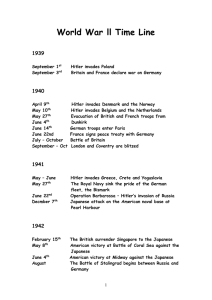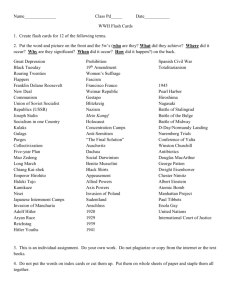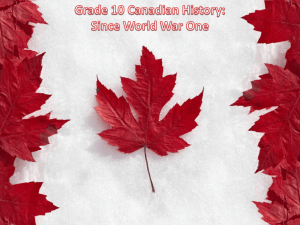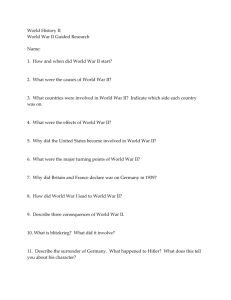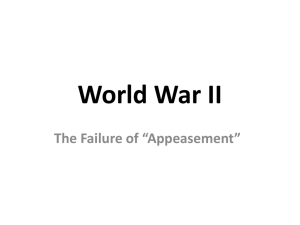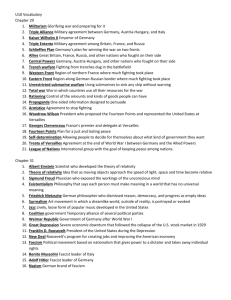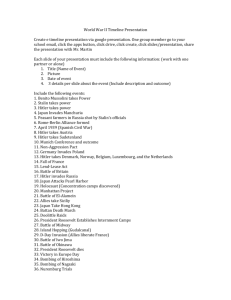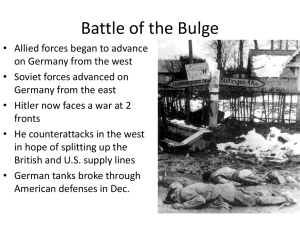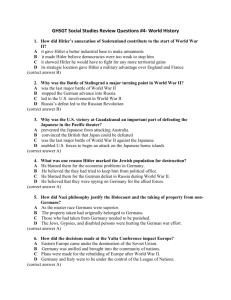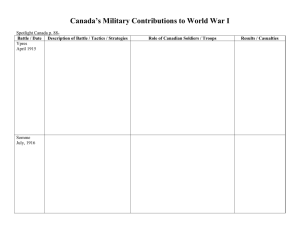world war ii - Cloudfront.net
advertisement
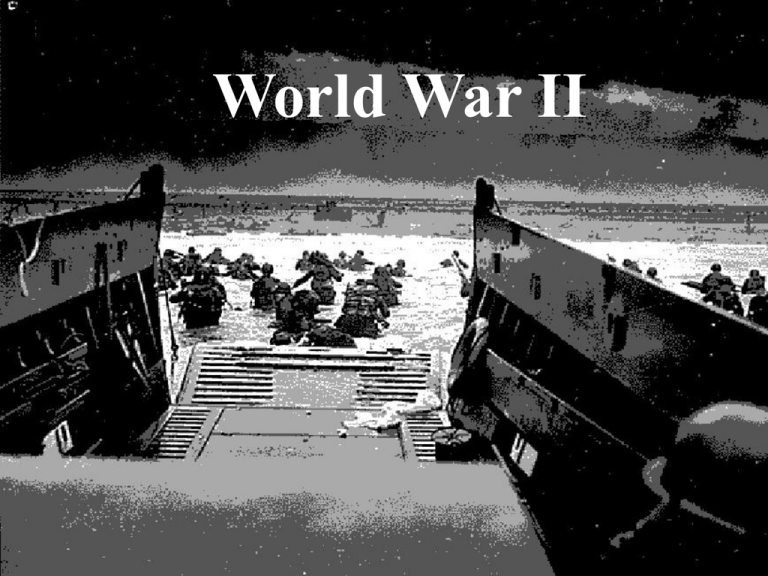
World War II Versailles, June 1919 From left to right: Prime Minister David Lloyd George of Great Britain Prime Minister Vittorio Orlando of Italy Prime Minister Georges Clemenceau of France President Woodrow Wilson of the United States The Versailles Treaty • • • • Land Reparations War guilt League of Nations The Versailles Treaty (continued) • German army reduced • Germany barred from having tanks, an air force, or submarines • Occupied DMZ west of the Rhineland Map showing German territory lost and the Rhineland DMZ The League of Nations Although President Wilson was the driving force behind the creation of the League of Nations, the United States did not join it. Rise of the Nazis • Germany’s economic woes • Political instability • Fascism • National Socialist German Workers’ Party Adolf Hitler The Nazis promoted a view of Germany as surrounded by enemies and threatened on all sides The Nazis Gain Power Hitler sworn in as Chancellor, 1933 Japan The Invasion of Manchuria and the “Rape of Nanking” Italy Dictator Benito Mussolini addresses his followers The Invasion of Ethiopia Emperor Hailie Selassie of Ethiopia Germany Rearms German troops march back into the Rhineland, 1936 Building an Axis Signing of Tripartite pact to form the Axis Alliance Hitler and Mussolini Rome-Berlin Axis The Spanish Civil War Generals Francisco Franco and Emilio Moré, leaders of the coup Spanish Civil War (continued) Italian soldiers in Spain New Weapons and Tactics Hitler tests weapons in Spanish Civil War The Destruction of Guernica Germany Takes Austria Nazi troops enter Austria The Munich Conference British Prime Minister Neville Chamberlain (left) and Hitler confer at the Munich Conference A weeping Czech woman reluctantly salutes Nazi soldiers as they march into the Sudetenland Nazi-Soviet Nonaggression Pact German Advances, 1939 American Foreign Policy, 1932–1941 • • • • • Isolationism Neutrality Acts FDR Lend-Lease The Atlantic Charter Churchill and FDR at sea during the Atlantic Charter talks Germany Takes France • France surrenders, 1940 • The French Resistance A Frenchman weeps as German troops march into Paris The Battle of Britain A London air raid shelter The Battle of Britain (continued) Germany Invades Russia Japanese Aggression General Hideki Tojo Locations of Japanese forces in November 1941 Pearl Harbor The U.S. Declares War FDR signs the declaration of war against Japan The Battle of Midway The USS Yorktown receives a direct hit during the battle of Midway The Battle of Stalingrad North Africa Italy Surrenders Allies enter Rome The D-Day Invasion U.S. troops wade ashore at Normandy The Liberation of Paris Paris, 1944 The Battle of the Bulge An American soldier guards German troops captured during the Battle of the Bulge U.S. troops advance through the snow toward the town of St. Vith, Belgium The Firebombing of Dresden Germany Surrenders V-E Day The Pacific War, 1944–1945 U.S. soldiers raise the American flag after capturing Iwo Jima Birth of the Atomic Bomb Preparing the atomic bomb to be dropped on Hiroshima Hiroshima Japan Surrenders Total War • Concept of “total war” • Mobilizing the economy • Rationing • Women in the work force • Propaganda • Military tactics Two old women stand amidst the ruins of an almshouse in Berkshire, England Mobilizing the Economy A worker inspects 1000-pound bomb cases Rationing and Victory Gardens • Gasoline, coffee, sugar, meat, other goods are rationed • “Victory Gardens” and other measures Women in the Work Force Propaganda Journalists interview Tokyo Rose Military Tactics Family in the wreckage of their Liverpool home Injured survivors of the Nagasaki blast Civilian Deaths The Holocaust The Nuremberg Military Tribunal The Yalta Conference The “Big Three” at Yalta The Potsdam Conference Attlee, Truman, and Stalin at Potsdam Divisions within postwar Germany U.S. Occupation of Japan MacArthur and Emperor Hirohito The Marshall Plan • Europe’s economy was in shambles after World War II • Marshall proposed aid to “all European countries who needed it” • Plan also worked to keep communism from spreading to western Europe The United Nations • International peacekeeping organization • FDR was the “principal architect” of the UN • Goals • Successes and failures The Postwar World Order
